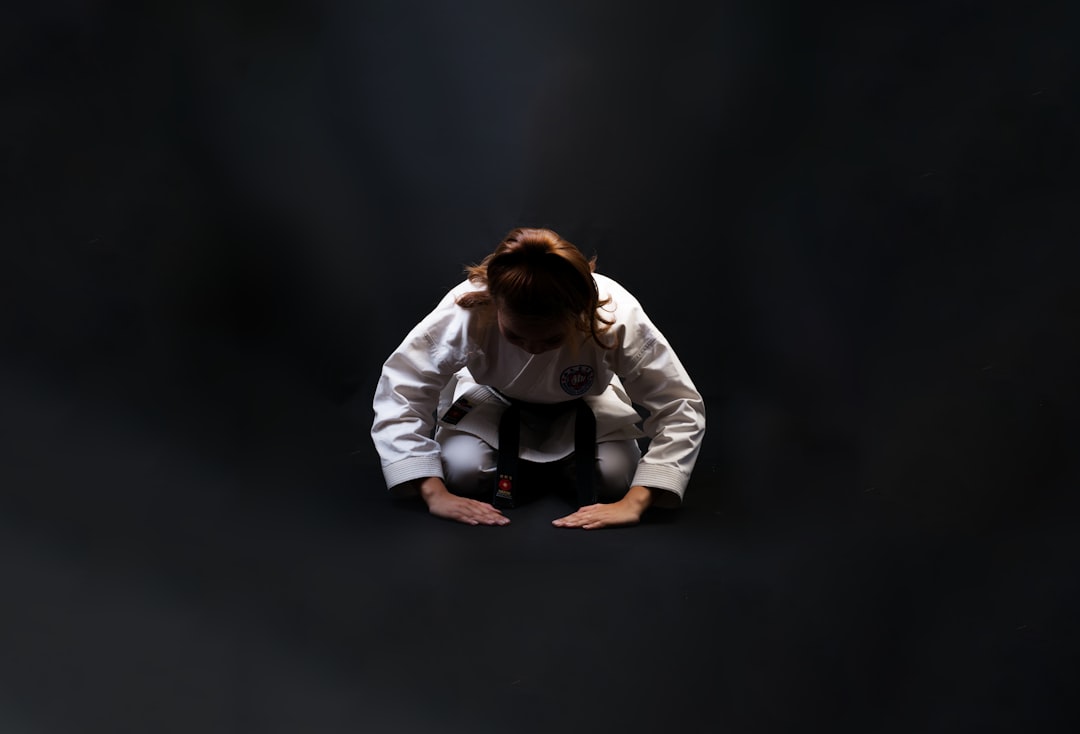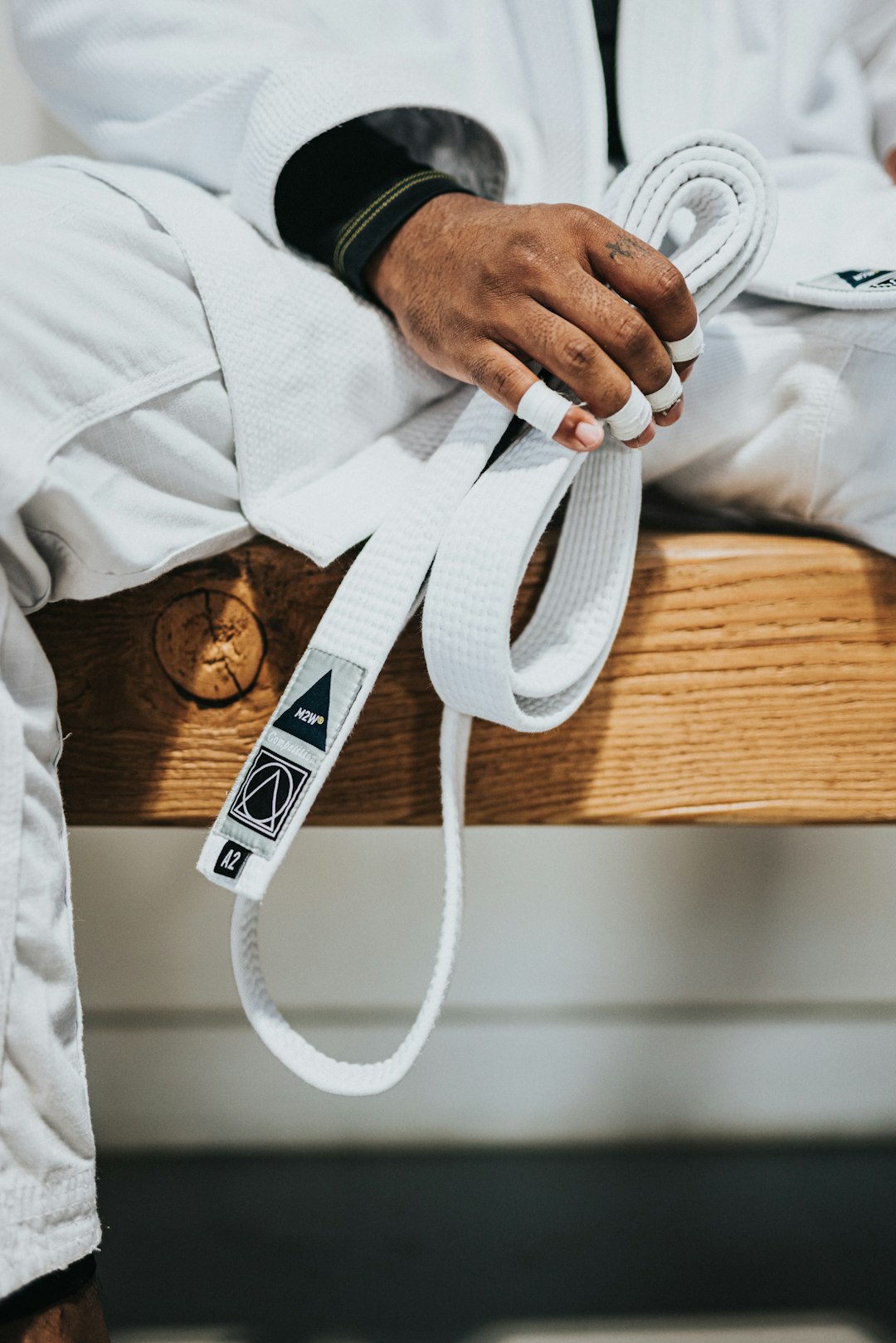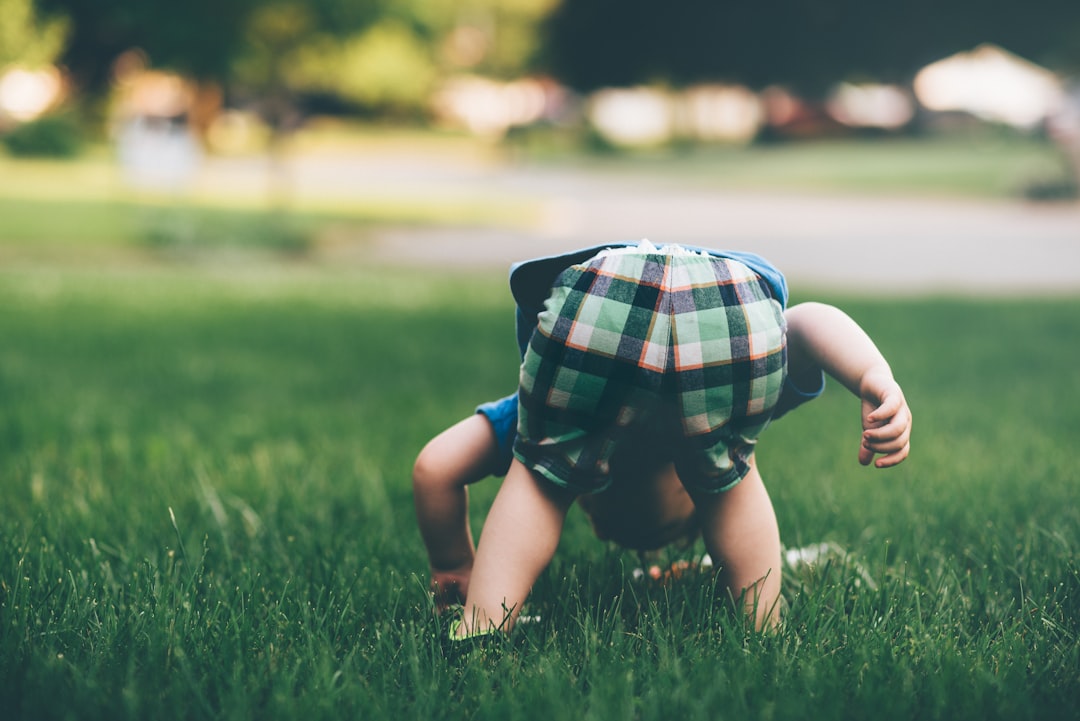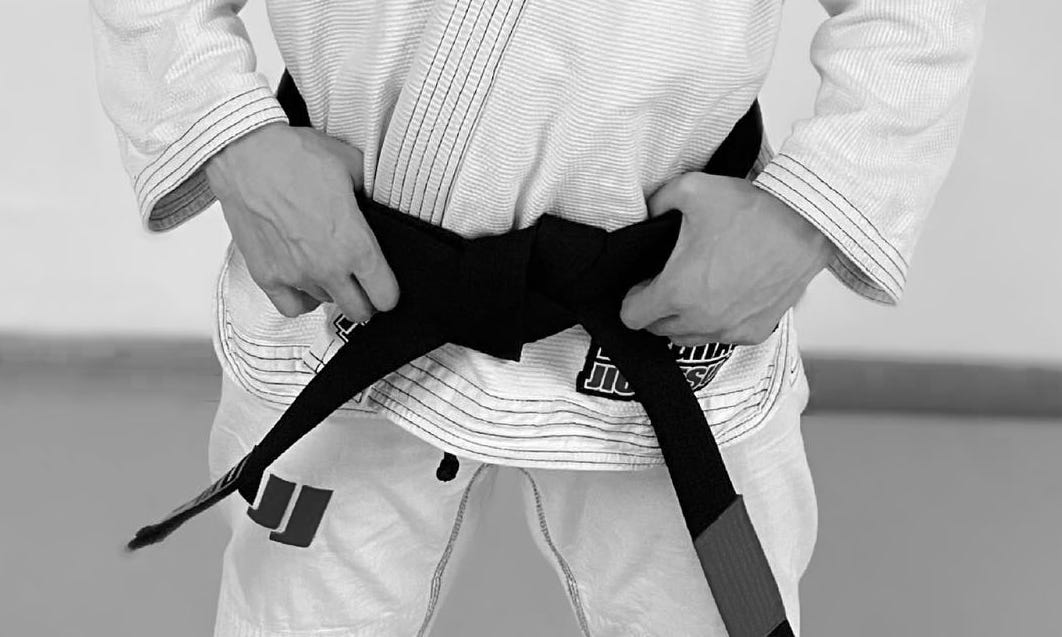Rewind: Lessons from Martial Arts on Writing and Failure
Cultivating a Beginner's Mind

Publish Not Perish is currently on a winter hiatus, which will run from December 11th to January 9th! I will be taking a break from publishing new posts this month to rest, reflect, and prepare for the new year! Never fear, dear readers; I will continue to send content to your inboxes each week, but it will take the form of rewinding old posts or sharing content from other writers during my hiatus.
The day my advisor’s red pen found me was devastating. I was in year one of graduate school, and it was the first time she had read my work. Her feedback was kind and constructive, but somehow the amount of work that paper required made me feel like a failure.
Looking back, I wonder why I had ever expected to be a good writer in my first year as an MA student. Perhaps it’s because I always enjoyed writing and people told me I was good at it. Perhaps it was because I had decided academia was the life for me, so I should be good at writing as a prerequisite. Whatever the reason, I had high expectations for myself that never really included learning from things I didn’t already do well. My imposter syndrome and perfectionism were in full force.
For the next several years, my writer self-esteem plummeted because I received so much feedback on how to improve. It wasn’t only seminar papers. I lost writing awards, I was denied fellowships, and I received journal rejections. My first revise and resubmit shattered me because I had worked so long and hard to perfect that article. My advisor and a trusted committee member had told me the article was ready to submit, so why was I still failing? I began to think I wasn’t a good writer and enjoyed it less and less.
Writing was hard and I lost so many sparring matches with it.
“You Don’t Lose, You Learn”
An unlikely teacher entered my life at just the right moment to reframe my understanding of writing and failure. I had been practicing martial arts of various sorts for several years, but in the second year of my PhD I started training Brazilian Jiu Jitsu.
I began jiu jitsu without any preconceived notions of being good at it or any expectations that I would win any given match. I spent a lot of time training with people who were much better than me and I lost a lot. I learned experientially through trial and error and I did so with abandonment. Removing any expectations of being good at jiu jitsu gave me a sense of lightness and freedom that made me a learning sponge. On top of all of this, because I had to be mindful and present while practicing, jiu jitsu became great stress relief from feeling bad about writing all the time and other grad school stressors.

One day I was reflecting on how natural learning jiu jitsu felt to me and how much learning to be an academic writer pained me. I wondered what differentiated these two pursuits. For starters, one was supposed to be my career and the other was just a hobby that I did for fun. Jiu jitsu had lower stakes while my writing had high standards. People, who I admired, measured and evaluated my writing. I wove their evaluations with my scholarly identity and I couldn’t separate who I was from those critiques. A good grade on a paper or an accepted manuscript meant I was accepted. Rejections meant that I didn’t belong. In jiu jitsu, on the other hand, my failures were just opportunities to learn.
“You don’t lose, you learn” is a refrain we repeat in jiu jitsu to remind ourselves where learning actually occurs: in losing.
I began to think about something an old martial arts sensei once taught me. He advocated that we practice martial arts with “a beginner’s mind.” The beginner’s mind is a concept in Zen Buddhism that asks practitioners to approach learning without expectations or preconceptions. Everything is new and fresh and the beginner’s eyes are wide open and curious. Sensei cautioned us that it was easier to maintain the beginner’s mind when first starting a martial art than after years of practicing it. The more experience you have, the more your ego whispers that you should be able to execute a technique without failing.
I wondered what it would mean to approach writing with the same beginner’s mind as I did in jiu jitsu. What if I let go of my fear of failure and just flowed like I did on the mats?
Learning to Walk
I began to think about learning to write the same way I approached learning jiu jitsu. I abandoned notions of being good at it and just began writing more and more. I became less self-critical and tried to detach feedback or rejection from my identity and instead see it as an opportunity to learn. Over time, changing these mindsets increased my writing productivity and enjoyment and made me more willing to put myself out into the world as a writer.
Formal education places such an emphasis on evaluation, critique, and grading that learners become paralyzed by the fear of the red pen. This begins at primary school and becomes intensified in PhD education. The fear of failing, of being rejected, or of not being instantly good at a task is such a hindrance to natural learning, which values practice, trial and error, and a curious mind.
Consider how children learn to walk. They fall over and over again, often grinning each time they plop to the ground because the process of learning is fun. They do not fear that anyone will come along and correct them and instead they just keep standing up over and over again. What would it look like to approach writing with the same freedom as that child?

So for graduate students who fear your mentors’ critiques, what would it look like to let go of any preconceived notions about where you should be and just accept where you are? For those opening the email to a rejected article, what would it look like to detach and preconceived notions of that rejection is a reflection of your value and instead just a learning opportunity? What if reviewer 2 actually had something you could learn from?
I know, I know. It will take a leap of faith to ever believe reviewer 2 had something helpful to say, but let’s imagine!
Even Roxane Gay Struggles with Writing
Practicing the beginner's mind helped me embrace writing anew; yet, a curious thing began happening in jiu jitsu over time. The longer I trained and the more advanced in rank, the harder it became to detach myself from any notions of how I should perform. The more advanced I became, the less I expected to lose and the harder failure became. My jiu jitsu began to suffer and I enjoyed it less and less even as my ability to write freely and fluently increased.
Roxane Gay recently posted about similar experiences with writing once she had received a certain level of success. She says
I’m struggling with my writing. I have been since Hunger came out, thus the long delay between that book and my next book which will, hopefully, be out next year. I write every day but most of what I write ends up nowhere. I open a Word file and type into it but the ease with which I am used to writing is gone. All I can think about is how a given work will be received. I anticipate all the eventual criticism and probe my work for weakness and try to hone each piece to perfection, which doesn’t even exist, and then it feels like the best parts of the work have been whittled away…I miss the ease of writing. I miss the way I can find a good groove and make language sing.
I empathize with Gay’s vulnerability here. The more success I achieve at something, the higher my expectations of myself rise, and the more self-doubt creeps in.
My journeys in jiu jitsu and in writing paralleled the same pattern Gay describes. I began with the confidence and openness of a child learning to walk. My self-worth was detached from my performance and I just flowed freely. Once the stakes became higher and my ego stepped in, both writing and jiu jitsu became harder to learn and I enjoyed them less. Returning to a beginner’s mind has freed both practices from the grip of my ego.
A Muddied and Bloodied White Belt
My relationship with jiu jitsu has evolved over the past year. It’s fun again. My imposter syndrome is abating and training feels almost as light and fearless as it did when I was a white belt. Letting go of any preconceived notions that failing or losing was a reflection of my identity is liberating. Seeking a beginner's mind that understands learning as an accumulation of numerous failed attempts allowed me to enjoy both writing and jiu jitsu again.
A beginner’s mind is not a static equilibrium one achieves, but a practice that ebbs and flows. I have to work at it on the mats and through the keys on my keyboard. The cosmos also has a habit of setting new challenges for you just as you begin to relax in stasis.
The universe issued a challenge just as I was becoming comfortable with jiu jitsu again. I became a Brazilian Jiu Jitsu black belt this past Saturday after nine years of training. I’m daunted, yet hopeful.
Japanese martial arts imagine a black belt as simply a white one that has been muddied and bloodied over time. This a comforting thought because it means that the white belt is always there to remind me to approach jiu jitsu with curiosity, wonder, and the open mind of a child.
If your mind is empty, it is always ready for anything, it is open to everything. In the beginner's mind there are many possibilities, but in the expert's mind there are few. ~ Shunryu Suzuki
A child-writer self who has yet to learn to fear the red pen is also with me and available to inspire you:
What would it look like to approach your writing with child-like wonder and fearlessness? How might you begin anew with your project and throw away any preconceived notions of what it means or what it should be?


